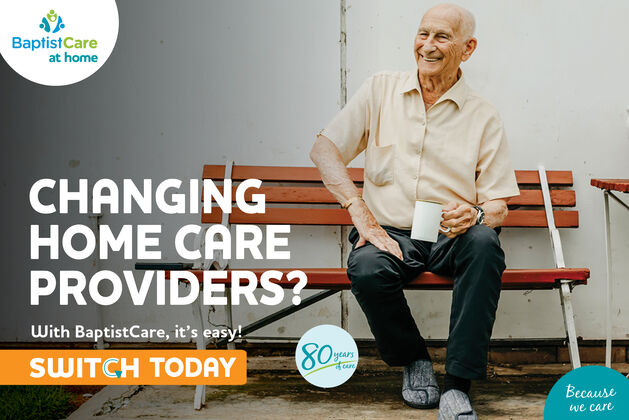In Home Caregivers and NDIS Plan Manager Duties: Navigating Home Care Providers in Australia
In Home Caregivers and NDIS Plan Manager Duties: Navigating Home Care Providers in Australia
Blog Article
How In Home Care Givers Address the Unique Obstacles and Emotional Needs of Households Looking For Assistance for Their Family Members
In-home caregivers play a critical role in navigating the complexities faced by families seeking support for their liked ones. By recognizing special household dynamics and offering tailored emotional assistance, these experts not only address instant treatment needs but additionally promote a setting of depend on and open interaction. This method is necessary in handling the emotional pressure often experienced by family members, as it acknowledges their concerns and confirms their experiences. Nonetheless, the subtleties of this relationship expand beyond simple caregiving; the implications for family members well-being and caregiving effectiveness warrant further exploration.
Comprehending Family Members Dynamics
Comprehending family characteristics is vital for providing efficient in-home treatment, as each family operates within an one-of-a-kind collection of communications and partnerships. These characteristics encompass various components, consisting of communication styles, roles, and power frameworks that affect just how treatment is delivered and received. The caregiver must acknowledge these aspects to make certain that treatment strategies align with the family members's worths and assumptions.
Different family members may display distinct patterns of communication, such as collective strategies or ordered frameworks. For example, in some families, a primary decision-maker might hold substantial impact, while in others, choices may be much more democratic. Understanding these patterns assists caregivers tailor their strategies to fit the family members's certain demands.
In addition, social backgrounds play a crucial function fit household dynamics. Caregivers should be culturally qualified, acknowledging and respecting varied practices and ideas that may influence care choices.
Eventually, an extensive understanding of family members characteristics helps with improved communication, cultivates count on, and boosts the caretaker's ability to sustain the family properly. By identifying the detailed web of connections and obligations, caretakers can develop a helpful setting that advertises wellness for both the private receiving treatment and the family in its entirety.
Offering Emotional Assistance
Giving emotional assistance is an important element of in-home treatment that significantly improves the wellness of both the private getting treatment and their member of the family. In the context of caregiving, psychological assistance involves active listening, empathy, and recognition of feelings. Caretakers are educated to acknowledge the psychological struggles that households encounter, such as isolation, stress and anxiety, and sense of guilt, and to offer a compassionate presence that relieves these worries.
By cultivating open interaction, caretakers produce a risk-free space for relative to share their problems and anxieties. This discussion not only encourages psychological launch however additionally enhances depend on in between the caretaker and the household. Furthermore, caregivers can provide useful methods to aid family members handle anxiety and advertise strength.

Ultimately, the psychological assistance offered by in-home caregivers enhances the high quality of life for both clients and their households, promoting a much more compassionate and understanding caregiving setting. This holistic technique makes sure that emotional requirements are addressed along with physical health and wellness factors to consider.
Handling Daily Care Tasks
Taking care of everyday treatment jobs is an essential aspect of at home treatment that makes sure individuals get the support they require to preserve their health and wellness and self-reliance. Caregivers play a crucial function in assisting with activities of everyday living (ADLs), that include showering, clothing, grooming, and dish preparation. By tackling these responsibilities, caregivers aid relieve the physical and psychological concerns that families may face while caring for their loved ones.
In addition to individual care, caregivers are also tasked with drug monitoring, making certain that customers stick to suggested routines and dosages. This oversight is crucial for maintaining health and protecting against damaging impacts from missed or wrong drugs. link Caretakers often help with flexibility, providing support for clients moving around their homes, thus minimizing the danger of drops and boosting total security.

Promoting Open Interaction
Reliable management of day-to-day treatment tasks usually rests on the high quality of communication in between caretakers, customers, and their households. Open communication cultivates an environment where issues, preferences, and responses can be freely exchanged, making sure that treatment is customized to satisfy private demands. Caretakers need to focus on routine check-ins with both clients and their households, promoting conversations that resolve any kind of concerns or adjustments in treatment needs.
Making use of numerous interaction techniques-- such as face-to-face meetings, call, and composed updates-- can enhance understanding and offer families with peace of mind. It's important for caretakers to proactively pay attention, showing empathy and respect for the psychological landscape of the household. Motivating concerns from relative can also help make clear treatment plans and reinforce the caretaker's dedication to transparency.
Furthermore, preserving open lines of communication makes it possible for caretakers to identify and react without delay to any kind of shifts in a client's wellness standing or emotional wellness. This proactive method not only reinforces the caregiver-client dynamic however likewise encourages households to participate proactively in the care procedure. Ultimately, cultivating open communication is vital for improving the quality of at home treatment and advertising a helpful atmosphere for all included.
Structure Depend On and Relationships
Count on is the keystone of successful at home care, as it establishes a structure for meaningful relationships between caretakers, clients, and their households. Structure this count on requires constant, clear communication and an authentic dedication to the well-being of those involved. Caretakers should show reliability with preparation, adherence to care strategies, and responsiveness to the needs and preferences of customers.
To foster depend on, caregivers ought to participate in active listening, ensuring that households really feel heard and comprehended. This includes not just dealing with prompt concerns but additionally anticipating future needs, thereby empowering families and enhancing their sense of control. Creating rapport with shared experiences and considerate communications can even more solidify these partnerships.
Moreover, caregivers should be trained to acknowledge and resolve the psychological intricacies encountered by family members. By revealing compassion and concern, they can relieve uncertainties and fears, strengthening trust fund. Normal updates and check-ins with relative can likewise enhance transparency, enabling them to feel involved and informed concerning their enjoyed one's treatment.
Eventually, developing count on and nurturing connections in in-home treatment is a collective process that dramatically influences the quality of treatment supplied, promoting a supportive environment that profits everybody involved.
Conclusion
By comprehending family members dynamics, providing psychological support, and promoting open communication, caregivers boost the general caregiving experience - great post to read in home caregivers. Their capacity to manage day-to-day care tasks while building count on and solid partnerships cultivates a helpful setting for customers and their households.
Recognizing family members dynamics is critical for providing reliable in-home care, as each household runs within an unique set click to read of communications and relationships.Offering emotional assistance is an essential element of at home treatment that substantially boosts the health of both the individual receiving treatment and their household participants. By taking on these responsibilities, caretakers assist alleviate the physical and psychological problems that family members might deal with while caring for their liked ones.
Effective management of daily care jobs often hinges on the quality of interaction in between caretakers, clients, and their households - home care providers australia.Depend on is the keystone of effective in-home care, as it establishes a structure for significant partnerships between caregivers, clients, and their families
Report this page